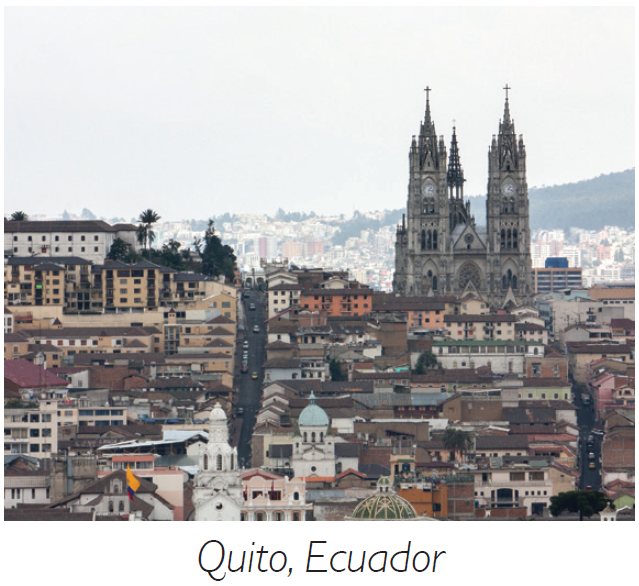Borrower Overview
TriLinc has provided financing to a vertically-integrated fish processor and exporter in Ecuador. Established in 1973, the company is engaged in the processing and sale of dolphin-safe tuna and sardine products for domestic and international consumption, primarily in the U.S, Europe, and Japan. As a locally-owned family business with over 40 years of industry experience, the borrower is a recognized leader in the Ecuadorian tuna industry. TriLinc’s financing provides the borrower with timely and flexible short-term capital to meet its production and sales projections while supporting further efforts to create jobs and increase employee wages.
Market Overview

Ecuador is classified as an upper middle-income country by the World Bank.1 Between 2010 and 2014, annual GDP growth rates averaged approximately 5.0%.1 Ecuador’s adoption of the U.S. dollar as its official legal tender in March 20002 fueled this growth and enhanced trade flows. Today, Ecuador is one of three Latin American countries that has fully “dollarized” their economy.3 Ecuador’s main exports are concentrated in petroleum, bananas, cut flowers, shrimp, cacao, coffee, wood, and fish.2 Conversely, the country’s main imports are focused in industrial materials, fuels and lubricants, and nondurable consumer goods.2 Ecuador meets TriLinc’s country standards for its performance across relevant growth, stability, and access metrics.4 As the ninth largest economy in the Latin America and Caribbean region5 with a GDP of $100.9 billion, Ecuador enjoys stable macroeconomic conditions and relatively well-developed infrastructure, which have led the country to benefit from the $178 billion in net foreign direct investment that was estimated to have flowed into the region in 2014.5 Between 2010 and 2014, the annual GDP growth rate for the region has averaged approximately 3.6% and is forecasted at 2.8% in 2017.7
Additional Sustainability & Impact Highlights
- The borrower’s fish processing facility incorporates state-of-the-art industrial ozone water treatment equipment to disinfect and oxigenate wastewater generated during production and manufacturing processes. Through efficient wastewater treatment methods, the company reduces its overall energy consumption and dependence on the national electricity grid.
- As part of a broader reforestation project, the company has planted approximately 2,500 trees on eight hectares around its processing and manufacturing facility, and uses the treated wastewater for watering, care, and maintenance.
- The borrower provides financial support to two nearby rural schools and implements a company-wide recycling program that benefits a foundation for the elderly.
- The company implements fish catching and processing best practices to ensure consistent product quality while minimizing impacts on the environment. These practices are compliant with recognized Hazard Analysis Critical Control Points (HACCP) norms, local and international regulations, and Dolphin Safe standards.8
1The World Bank, World Development Indicators Database, Ecuador, 2015. 2CIA, The World Factbook, 2015: Ecuador. 3Investopedia, Countries that Use the U.S Dollar, 2015. 4There is no assurance that our investment in this company or this market will be successful. 5The World Bank, World Development Indicators Database, 2015. 6The World Bank, Data, Latin America and the Caribbean, 2015. 7The World Bank, Global Economic Prospects, June 2015. 8International Marine Mammal Project- Earth Island Institute, 2016.
The above information is as of the initial date of investment: August 27, 2015.
This borrower is no longer a TriLinc fund investment.
An investment with TriLinc carries significant fees and charges that will have an impact on investment returns. Information regarding the terms of the investment is available by contacting TriLinc. This is a speculative security and, as such, involves a high degree of risk. Investments are not bank guaranteed, not FDIC insured and may lose value or total value. Some investments may have been made in an investment vehicle that is no longer open for investment. The highlighted investment may or may not have been profitable. There is no guarantee that future investments will be similar.
Want to learn more? Contact Us.
